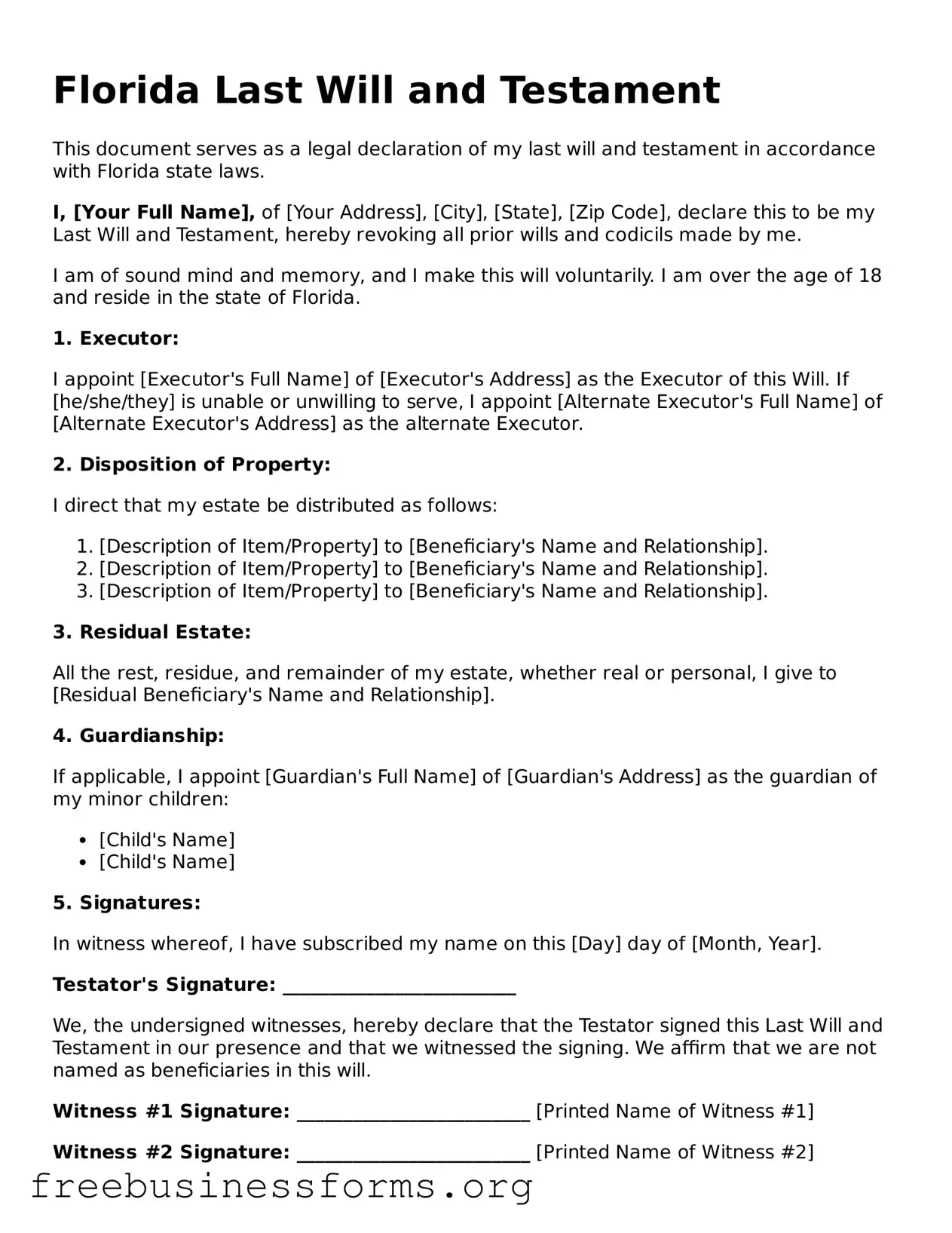Blank Last Will and Testament Template for Florida
The Florida Last Will and Testament form is a legal document that outlines an individual's wishes regarding the distribution of their assets after death. This form ensures that your intentions are honored and provides clarity for your loved ones during a difficult time. Understanding its components is essential for effective estate planning.
Open Form Here

Blank Last Will and Testament Template for Florida
Open Form Here

Open Form Here
or
↓ PDF File
Quickly complete this form online
Complete your Last Will and Testament online quickly — edit, save, download.